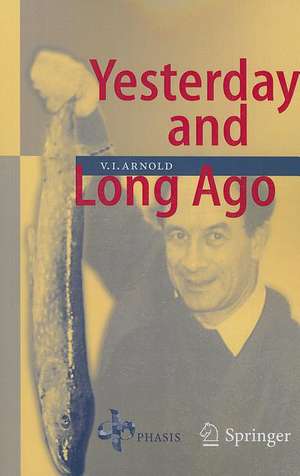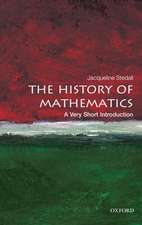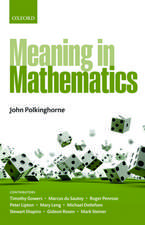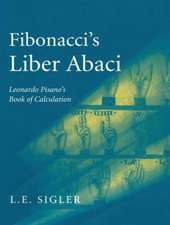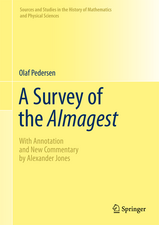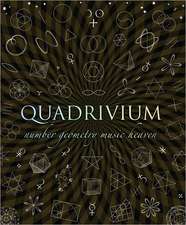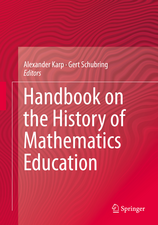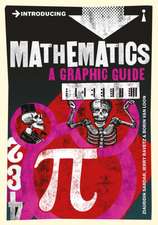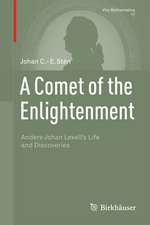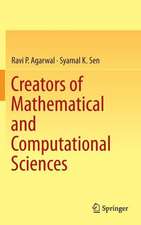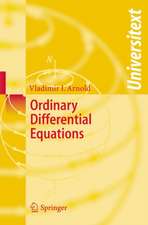Yesterday and Long Ago
Autor Vladimir I. Arnolden Limba Engleză Paperback – 12 feb 2010
| Toate formatele și edițiile | Preț | Express |
|---|---|---|
| Paperback (1) | 244.97 lei 3-5 săpt. | |
| Springer Berlin, Heidelberg – 12 feb 2010 | 244.97 lei 3-5 săpt. | |
| Hardback (1) | 250.49 lei 3-5 săpt. | |
| Springer Berlin, Heidelberg – 11 oct 2006 | 250.49 lei 3-5 săpt. |
Preț: 244.97 lei
Nou
Puncte Express: 367
Preț estimativ în valută:
46.88€ • 48.01$ • 38.100£
46.88€ • 48.01$ • 38.100£
Carte disponibilă
Livrare economică 25 februarie-11 martie
Preluare comenzi: 021 569.72.76
Specificații
ISBN-13: 9783642066863
ISBN-10: 3642066860
Pagini: 244
Ilustrații: XIV, 230 p.
Dimensiuni: 129 x 198 x 13 mm
Greutate: 0.25 kg
Ediția:2007
Editura: Springer Berlin, Heidelberg
Colecția Springer
Locul publicării:Berlin, Heidelberg, Germany
ISBN-10: 3642066860
Pagini: 244
Ilustrații: XIV, 230 p.
Dimensiuni: 129 x 198 x 13 mm
Greutate: 0.25 kg
Ediția:2007
Editura: Springer Berlin, Heidelberg
Colecția Springer
Locul publicării:Berlin, Heidelberg, Germany
Public țintă
Professional/practitionerCuprins
First recollections.- The North-West direction.- Vera Stepanovna Arnold (Zhitkova).- First scientific recollections.- The Arnold family.- Home library.- The axiomatic method.- School years.- The color of a meridian.- It is difficult to keep a secret.- The temple of science.- The state exam on the principles of Marxism-Leninism.- Who did what.- Lavoisier and French mathematics during the Revolution.- Queen Eleanor, Rosamund, and labyrinth theory.- Place des Vosges.- Chample Zee.- Neutrinos, neutrons, and Bruno Pontecorvo.- How to distinguish good from bad mathematical works.- Plutarch’s combinatorics.- The topology of surfaces according to Alexander of Macedonia.- Hunting for snakes.- The guillotine and Marie-Antoinette.- The torments of Damiens.- Queen Margot and the kingdom of legality.- Joan of Arc — a saint and a witch.- Ravaillac, French cuisine, and traffic jams.- Anna Yaroslavna.- Gennady of Novgorod and education of youth under Ivan III.- Catherine I and the Prut campaign.- Catherine II and I.I. Betskoy.- The Crimean war.- Dashkova and parachutes.- Profanation of a sacred object and abstract algebra.- Caesar and Gauls: the defence of Rome from the Germans.- France — Guinea — India.- Tamil tigers in the Swiss Consulate in Paris.- The planning department.- Mountain lions over Stanford.- Hong Kong.- Brazil trips.- Leibniz as a precursor of Bourbaki.- The origin of mathematics: the route from Egypt to Greece.- The motivation for teaching mathematics in Israel.- The struggle with foreigners and their languages.- “Our Manchuria”.- From the history of the French economy.- Ramanujan and Hardy.- Picking up cranberries.- Tomography of the brain, geometry, and algebra.- Inedible hares.- How Academicians were elected and how they were eliminated.- Weierstrass andSophia Kovalevskaya.- Radischev.- Mandate (“Nakaz”) of Catherine II.- Religion and science, Luther and anti-Semitism.- Galileo.- “Mistral” in the “Crown”.- Abel’s theory and modern mathematics.- From Pareto to Arzamas.- Whether the Moon will fall onto the Earth or not?.- The pike of Cambridge.- Pon’goma river and Solovki.- The Suputinsky nature reserve.- The Yamal peninsula and grubbing snow caves.- The Pocha river and a dog named Shnura.- Aksin’ino cemetery.
Textul de pe ultima copertă
This charming book by one of the leading mathematicians of our day, Vladimir Igorevich Arnold, is a rambling collection of his memories from early childhood up to recent days. Some marvellous historical and geographical stories occupy a large part of the book. Their characteristic lively style draws the reader into the past as though it were happening today.
The book will be of value to historians of twentieth-century mathematics as source material, and mathematicians will read it for the pure pleasure of learning more about one of their most eminent colleagues. It has both humor and pathos, and even a non-mathematical reader will find it very difficult to put it away.
The book will be of value to historians of twentieth-century mathematics as source material, and mathematicians will read it for the pure pleasure of learning more about one of their most eminent colleagues. It has both humor and pathos, and even a non-mathematical reader will find it very difficult to put it away.
Caracteristici
V.I. Arnold is not only one of the most outstanding living mathematicians, but also an excellent writer The book will be enjoyed by all mathematicians, physicists and readers beyond these core groups
